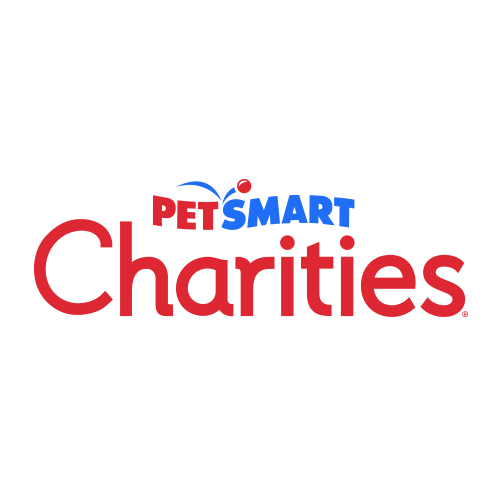Los Angeles, CA (July 19, 2021) — Non-profit organizations Michelson Found Animals Foundation and the Human Animal Bond Research Institute (HABRI) today announced the release of a new Pet-Inclusive Housing Initiative (PIHI) Report, outlining the path to create more than 8 million new pet-friendly rental homes in the United States. The report identifies both the economic opportunity for rental housing owners and operators and the community benefits of pet-inclusive rental housing.
“Michelson Found Animals and HABRI developed this report to provide clear and detailed market-based strategies that benefit all – housing owner/operators, residents, and our beloved pets, who have been so important to us during the pandemic,” said Brett Yates, CEO of Michelson Found Animals. “We look forward to sharing this report to create more pet-inclusive housing for healthier, more connected communities.”
The report highlights results of a comprehensive survey of residents and owner/operators conducted on behalf of the Pet-inclusive Housing Initiative, and looks at the opportunity for pet-inclusivity to help blunt the impact of the pandemic on the rental housing marketplace.
“This report is grounded in data that will spur common-sense changes to increase the availability of pet-inclusive housing,” said Steven Feldman, HABRI president. “Our message to housing providers is that they can do good and capture an economic opportunity by easing restrictions on pets in rental housing communities.”
The data shows that significant restrictions on pets in rental housing present hurdles for pet-owners. It also shows that the majority of rental housing owners and operators love pets. Bridging the gap by increasing the availability of pet-inclusive housing can help families find the homes they need, provide economic benefits to owners/operators, and help up to 8.2 million animals find new homes over time.
Rental housing owner/operators can benefit from pet-inclusive policies by becoming attractive to a wider pool of potential residents. The data shows that, on average, residents in pet-friendly housing stay 21 percent longer than those in non-pet-friendly housing. Owner/operators also reported that pet-friendly vacancies can be quicker and easier to fill.
“A major opportunity exists for property owners and operators to embrace pet-inclusive policies to attract and retain residents and enable more people to access the joy of pets in their lives,” Yates added.
Through the implementation of new pet-inclusive policies, rental housing operators can boost their leasing and resident retention efforts while also keeping families and their pets together. Solutions for owner/operators to consider include:
- Attracting pet owners by offering a free month of pet rent or waiving pet deposits, and instead relying on regular security deposits to cover minimal damage that pets may cause.
- Creating an easy-to-follow screening process and pet agreement that focuses on well-behaved pets and owners.
- Formalizing the types of pets allowed in the community with forward-thinking, positive pet policies.
- Increasing the number of pets that can live in a unit from one to two.
- Coordinating with shelters and pet adoption agencies to organize virtual meetings with pets.
“COVID-19 may have altered the housing landscape as we know it, but it has also showed how pets are so important in people’s lives,” Feldman added. “By providing residents with a clear path to welcome a pet into their home, housing owner/operators can benefit, while helping residents cope in uncertain times.”
Key Findings in the Report:
- Easing Restrictions on Pet Friendly Housing Makes Economic Sense
- 83% of owner/operators say pet-friendly vacancies are filled faster
- 79% say that they are easier to fill
- Everyone Loves Pets
- 98% of residents with pets and 92% of all residents surveyed consider pets to be important members of the family
- 93% of housing owners/operators consider pets to be important members of the family
- 76% of housing owner/operators identify their properties as allowing some pets, which reflects a willingness to accommodate pets by a large majority of housing owner/operators.
- Current Restrictions Limit Pet-Friendliness
- 72% of residents say pet-friendly housing is hard to find
- 59% of residents say pet-friendly housing is too expensive
- 92% of pet-friendly housing places some restrictions on the type, number, breed, or weight of pets
- 35% of non-pet-owning residents say they would get a pet if restrictions on their rental housing were lifted
- 33% of pet-owning residents say they would get another pet if restrictions on their rental housing were lifted
For more information, please visit petsandhousing.org.
About the Market Research
The market research, conducted by data and analytics consultancy LRW on behalf of Michelson Found Animals Foundation and HABRI, was conducted in the United States to explore the current housing circumstances of residents with and without pets in non-rural settings, and the perceptions of property owners and managers towards pet-friendly housing and pet owners. The research was conducted online among a nationally-representative sample of 1,049 residents (749 pet owners and 300 non-pet owners) and by telephone with 500 property owners and managers.
About Michelson Found Animals Foundation
Michelson Found Animals Foundation is a leading animal welfare non-profit that believes people and pets are better together. Generously funded by Dr. Gary Michelson and Alya Michelson, Found Animals operates a range of social enterprises, impact investments, strategic partnerships, and thought leadership initiatives that share a common goal: to champion pets at every point they intersect with our society. Found Animals has helped more than 5 million pets since it was founded in 2005. Learn more at foundanimals.org.
About HABRI
HABRI is a not-for-profit organization that maintains the world’s largest online library of human-animal bond research and information; funds innovative research projects to scientifically document the health benefits of companion animals; and informs the public about human-animal bond research and the beneficial role of companion animals in society. For more information, please visit habri.org.
Contact
Jamie Baxter
jamie@theimpetusagency.com
775.322.4022
###





